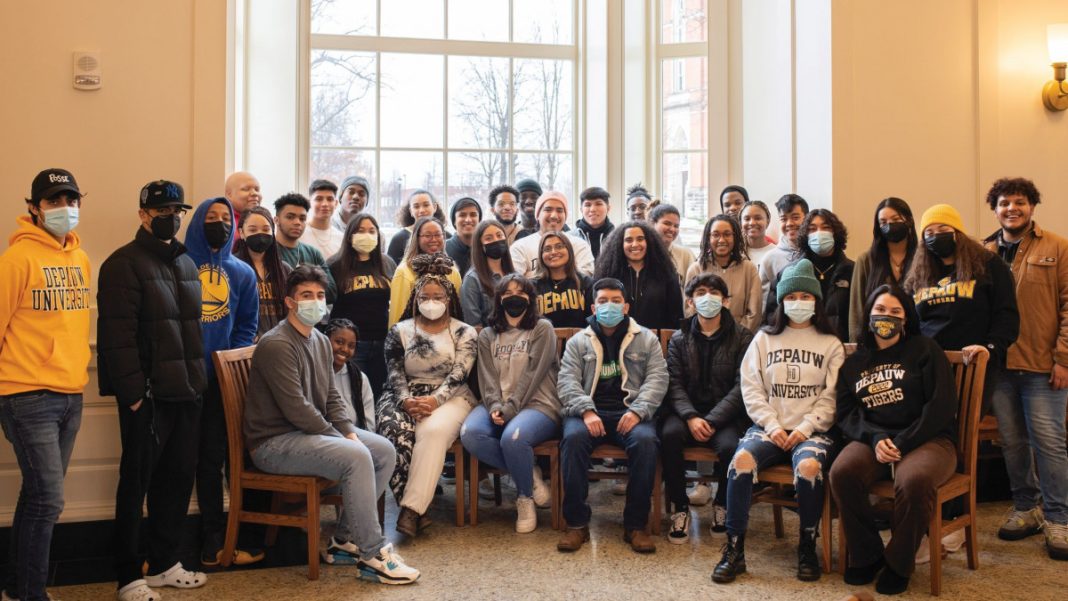With the belief that diverse and strong leaders will be the beacons towards solving 21st century issues, the Posse Foundation was initiated in 1989 to offer an opportunity for these future leaders to nurture and demonstrate their drive, skills, and knowledge. Each year, through the unique three-round Dynamic Assessment Process (DAP), 10 students will be selected as Posse students for each partner university. In Fall 2001, with the suggestion of alumni Timothy Collins ‘78, DePauw welcomed the first class of New York (NY) Posse students. Since then, New York Posse students have continuously been creating transformative impacts not only for the student body through student-led organizations and projects, but also for the admission and administration system at DePauw.
For these reasons, it was a shock to NY Posses and DePauw students when they received an email from the Office of the President on May 17. The announcement detailed how DePauw's Posse program would be replaced by “regional college access organizations in Indiana, Ohio, Illinois, and Missouri” in alignment with the university’s priority to recruit more students from the Midwest. AJ Whitter, a NY Posse '25, expressed her frustration on how the decision was ill-timed as most non-senior students, herself included, had already gone home or traveled outside the university. This left them without a chance to raise their opinion. Meanwhile, Nathaniel Swanson, a NY Posse ‘23 who had strong connections with the school’s administration through various on-campus positions, also reflected on the media handling of DePauw. He considered it “a little distasteful” as the discussion was only opened to students after the decision had been made. Moreover, during the Posse celebration, the Alumni Center reached out to him regarding alumni donations, which Swanson considered “disrespectful,” saying that it showed that they “did not even see [alumni Posses] as people.”
Throughout the summer, Whitter said that she received email newsletters from the Posse Foundation about available hours that NY Posse students can drop by for discussions. However, Whitter believed that it was difficult for students to actually come to these sessions as many of them had summer jobs and/or were simply not in New York for the summer. She also received few follow-up communications from DePauw after the decision was made. On this matter, the Vice President for Enrollment Management, Mary Beth Petrie, stated that for admitted and current students, their scholarships and access to promised resources were not impacted by the decision. She, along with President Lori S. White and Dean of Student Academic Success & Equity Anthony Tillman, also reached out to inform first-year Posse students about the unchanged desire to welcome them on campus.
Similar to Petrie's statement, Tillman also stated that “the level of institutional support” for Posse students would not waver until their graduation from DePauw. Speaking about the specific resources from administrators for NY Posses and Posse students in general, Petrie highlighted the Posse mentor program and the Posse Retreat. The Posse mentors, according to Petrie, are usually faculty or staff members who will be meeting with Posse students on a weekly basis.
Whitter, however, did not indicate a positive experience with the NY Posse mentor program as there was an unannounced change in mentors during the second semester of her sophomore year. She also felt that communication from Dr. Tillman during last year’s Posse Retreat was passive-aggressive.
On the other hand, Swanson believed that there is a certain inconsistency in the Posse mentor program, due to its volunteer-based nature without any required entry checks (at least not to his knowledge). With the appreciation for Dr. Tillman’s responsiveness, Swanson emphasized the need for a bigger Posse mentor team with adequate understanding of DePauw, the dedication to connect with Posse students on a deeper level, and profound awareness of Posse students’ struggles. Posse mentors used to have support from Posse student interns, but this program was discontinued last year.
These challenges, if left unchecked, may put heavy pressure on NY Posse students, especially the class of 2027 cohort, who will be the last class of the program at DePauw. NY Posse students have been exceptional leaders and peer educators who have continuously cultivated healthy and equitable learning environments at DePauw with their rich experience and critical viewpoints.
Petrie noted her desire for faculty, staff, and students to come together to uphold a sense of belonging and respect for anyone who comes to DePauw. Meanwhile, Whitter encouraged student-led organizations to stand in solidarity with NY Posse students. She highlighted the petition form by the Democratic Socialists of DePauw (DSD) which gathered over 500 signatures objecting to the program’s “sunsetting” decision. For Swanson, he expressed the hope for the community to view Posse students as not just leaders and workers, but also as human beings with different layers of personality, thoughts, and emotions. This means being willing to learn more about Posse students on a personal level. From coming to events that they lead to just waving to them on the way to class, these are examples of how DePauw as a community can empower Posse students and the student body as a whole.

